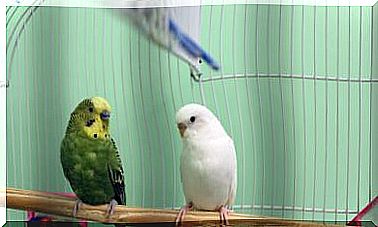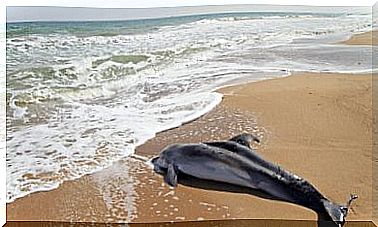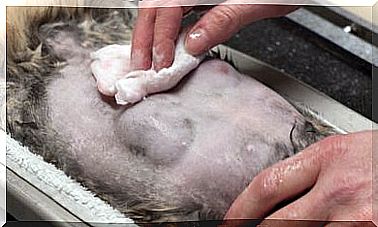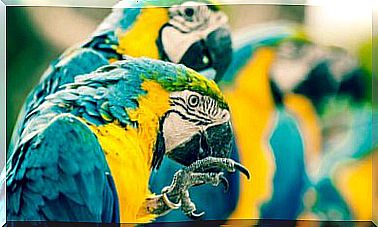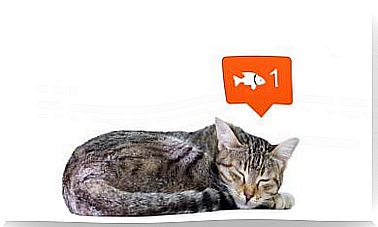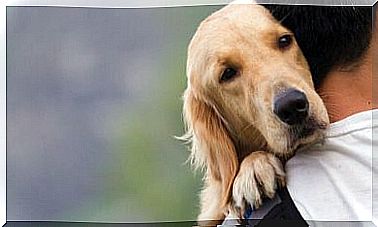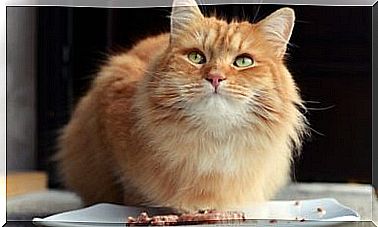Parental Care: Is It Worth The Effort?
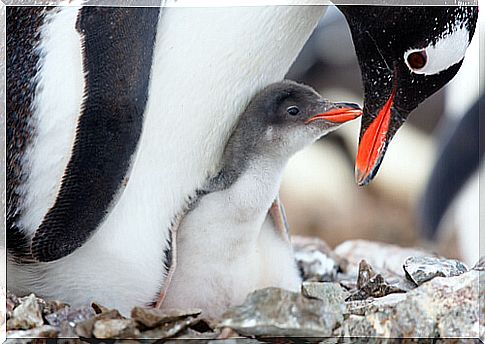
Nests in trees and birds hunting for food for their young is a typical image of spring. It may sound like adorable behavior, but behind it lies a complex, nuanced evolutionary mechanism. Parental care is a devastating energy expenditure for parents, and can even drastically reduce their survival.
In nature, all force is based on a trade off or exchange. An invisible scale conditions animal behavior, since everything is governed by the need to reach the next reproductive stage to give rise to more offspring.
So what pays the most for parents? Sacrifice your health to care for your children, or leave them to their own devices to maximize your own chances of living to the next year?
Without a doubt, the world of parental care is exciting, and we encourage you to continue reading if you want to find out why.
Parents to the rescue
Parental care is defined as any behavior by parents that increases the viability of their offspring. Some examples:
- Preparation of nests or caves.
- Care of the young inside or outside the body of the parents.
- Provisioning and feeding of the young after birth.
- Nutrition of the young until they reach their nutritional independence.
Simple truth? yet there is an essential differentiation within the term parental care :
- Parental expenditure is the expenditure of resources by parents (including time and energy) in caring for one or more descendants. It is quantifiable, as it is based on a proportion of resources.
- Parental investment is any action by parents that increases the survival of their children at a
cost over some component of their own. For example: if a father exposes himself to predators to find food for his son, his chances of living decrease. On the other hand, those of the baby increase, because by itself it could not eat or it would be much more difficult for it.
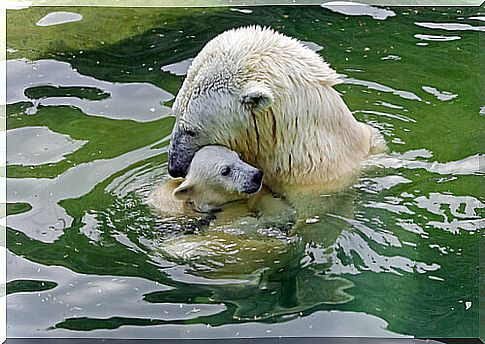
How far does the cost go?
Behavioral studies like this one have shown that parental care can be devastating for parents. In one species of swallow ( Delichon urbicum) it was observed that the survival of the females decreased if they had two clutches of young per year.
It is not only costly to lay the eggs: it is also costly to incubate and feed them until they are emancipated. All this energy causes weakness in the mother, and her reflexes may be impaired when avoiding an opportunistic predator.
Another study showed that in one species of chickadee (Poecile montanus), parental survival during the 3 months following the reproductive season was negatively associated with the number of young. The more children, the more mouths to feed and the less time to fill your own.
A number dance
Reproduction in the animal world sounds risky, right? Fortunately, math rules even the most primal behaviors.
The optimal parental investment per offspring is one that maximizes the survival of the child at the least parental cost. That is to say, benefit-cost = positive number. Two commitments that parents must face are:
- How much to invest in each brood: more broods and less investment per brood or fewer broods and more investment per brood.
- How much to invest in reproduction present vs. future reproduction.
All this may sound complicated, but the reality is that there are mathematical functions that explain this exchange between parents and children. At the end of the day, the effort is quantifiable (energy measured in the parents and percentage of offspring that survive, for example).
The perfect number of offspring is the one that least puts the parents at risk in order to survive until the next breeding season.
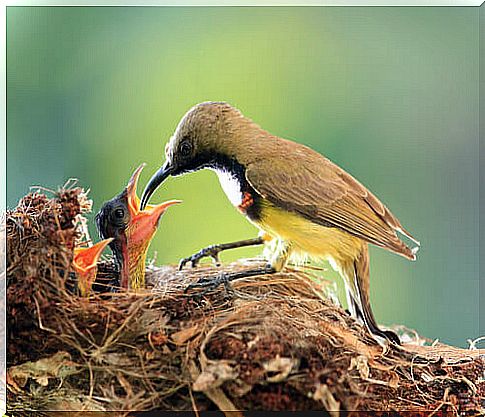
Parental care: animal altruism, or pure self-benefit?
To speak that parents give their lives for their children unconditionally is to skew reality. At the end of the day, although it is sad to see it so cold, parents only seek their benefit.
In the wild, the engine of life is to transmit one’s own genetic information. That is, having children. It is not a disinterested attitude as such, and for this reason there are very few species in which adults take care of other people’s children.
We go further: in many species in which the parents cannot ensure that they are really their children (external fertilization by several male eggs in fish, for example) the males do not directly take care of the offspring.
As we have seen, the world of parental care is complex and is based on a number game. It’s all about transmitting the greatest number of genetic material successfully and that the children can follow the lineage in the future.

